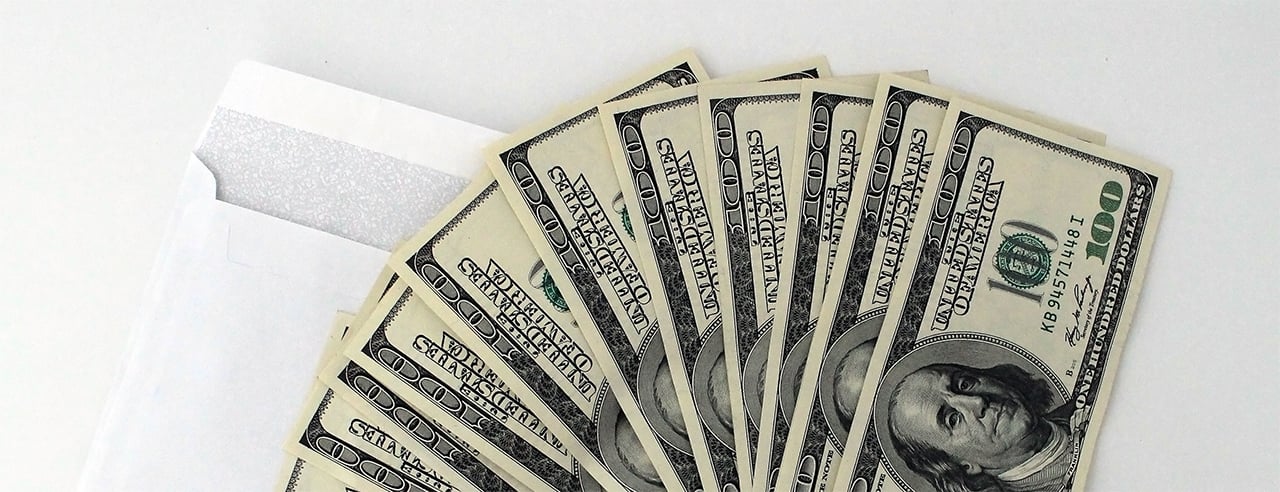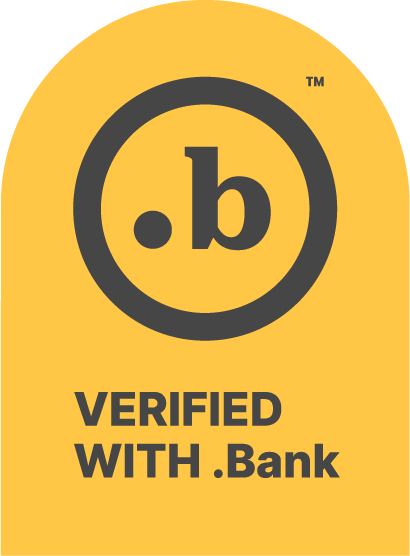CyberSecurity Tips
Cybersecurity is a major concern for all industries and businesses—including our customers. It’s important to take the necessary precautions so you can protect yourself and your business from potential threats.
Cybersecurity is the protection of data and information from unauthorized access, use, disclosure, disruption, modification or destruction. It includes protecting information on computers and networks from being obtained by unauthorized users. It also ensures authorized users have access to the data they need when they need it.
Cybersecurity is a broad term that covers a wide range of topics including:
- Preventing unauthorized access to electronic data,
- Blocking hackers from infiltrating computer systems,
- Ensuring that information stored on electronic devices is not compromised by malware or other malicious software, and
- Monitoring for security breaches and taking steps to minimize their impact on an organization’s operations.
Be sure to check out the CapTex Bank CyberSecurity series.
Email, Text Message & Telephone Scam Notice
CapTex Bank will never call, text message or e-mail you and ask for personal information. Your information was gathered at account opening, so we have the information we need, which includes your birth date, your tax id number, and all your account numbers.
Never give out personal information through e-mail. Unless you initiate the contact, do not give out personal information over the telephone. If the call is not initiated by you, always ask for a call-back number. Use legitimate sources to verify CapTex Bank contact information, including:
- www.captex.bank
- 817-569-6226 or 903-989-2235
- Official contact information on your bank statements
To learn more about protecting your Identity and avoiding Identity Theft, visit www.identitytheft.gov
What You Need to Know About a Fast-Growing Scam Known as “Pig Butchering”
This scam is named in reference to the practice of fattening a pig before slaughter. It is a type of confidence and investment fraud in which the victim is gradually lured into making increasing monetary contributions, generally in the form of cryptocurrency, to a seemingly sound investment before the scammer disappears with the contributed monies.
Beware! This is how it works:
- Perpetrators will contact you out of nowhere via text messages, dating apps, social media platforms, and later switch to VOIP chat applications.
- Perpetrators will try to develop meaningful relationships with you, gain your trust, and offer you high-yield investment opportunities in virtual assets, such as cryptocurrency.
- Perpetrators will tell you to open accounts on online investment websites and instruct you to deposit money via wire transfer to shell companies, or direct transfers on legitimate virtual asset service providers (VASPs) or cryptocurrency exchanges.
- Perpetrators will pressure you to invest more money, or your relationship with them will end. You can be duped and the fraud will end: When you attempt to withdraw money, websites may demand that you pay additional fees to do so; or you may be locked out of the account and never hear back from the perpetrator.
- Perpetrators disappear with all of your funds.
REPORT: If you suspect you are a victim of a Pig Butchering Scam, notify your bank immediately. Contact your local police department and file a police report. File a complaint on the FBI’s Internet Crime Complaint Center (IC3): https://www.ic3.gov.
Internet Banking Phishing Attempts Notice
CapTex Bank Internet Banking will not ask you to enter personal or account information during the login process or for any Internet Banking pages where the information requested is not relevant to the transaction. You should not enter sensitive data if you are prompted to do so during the login process. Please ensure that the device you use to access Internet Banking has current, up-to-date anti-virus and anti-malware software definitions.
Phishing attempts could possibly target Internet Banking in one of these three methods:
- The login process could be modified by adding a Web page stating that the computer cannot be identified and that the user is required to enter credit card information in order to continue.
- The page that requests the user data does appear to originate from the Internet Banking site with the correct URL and certificate information; however, this page is generated by malware installed on your local computer and not from the Internet Banking site.
- This malware could most likely be installed from an opened e-mail attachment or a compromised website viewed on an infected computer that you use for Internet Banking.
If you have any questions, please contact us at 817-569-6226 or 903-989-2235 for further assistance.
Identity Theft
What is Identity Theft?
- Identity theft is the unlawful use of another person’s identification
How does Identity Theft Happen?
- Dumpster Diving: Your trash is searched for personal information
- Phishing: Unsolicited e-mails or pop-up messages pretend to be a financial institution, company or government agency in order to lure you into providing personal information
- Hacking: Your e-mail and online accounts can be compromised
- Skimming: When a special storage device is used on a card slot to steal credit/debit card numbers when card is processed
- Stealing: Wallet or purse is stolen. Incoming or outgoing mail is stolen, including items such as bank statements and pre-approved credit card offers
How to Prevent Identity Theft:
- Never provide your personal information in response to an unsolicited request, whether it is by phone, internet or e-mail
- Protect your incoming and outgoing mail
- Review your statements on a regular basis and report any suspicious items immediately
- Shred items that contain personal information
- Check your credit reports annually by going to: www.annualcreditreport.com
- Guard your computer with current anti-virus and anti-spyware protection
- Report lost or stolen checks, credit and debit cards immediately
If You’re a Victim of Identity Theft:
- Notify your financial institution
- Contact the fraud departments of the three major credit bureaus:
- Equifax: 1-800-525-6285
- Experian: 1-888-397-3742
- TransUnion: 1-800-680-7289
- File a police report with your local police department
- Inform your credit issuers
For additional information and advice, call the Federal Trade Commission (FTC) Identify Theft Hotline at 1-877-IDTHEFT (438-4338) or visit their ID Theft Website at www.identitytheft.gov.
Bank Jugging
Bank jugging is a term used to describe a scenario where a robber waits in the parking lot or other area near the bank and observes customers going in and out of the bank location. They look for customers who exit the bank with a deposit bag or a thick cash envelope. Branch lobby entrances, in-store teller lines, drive throughs, and ATMs are prime locations for this to occur.
The customer is followed by the jugger to their next destination, whether it be to the grocery store, gym or home. The jugger will then take the opportunity to either break into their vehicle or rob them directly.

Here’s what to watch for:
- A vehicle moving between several parking spaces
- Occupants of the vehicle never entering the building
- Vehicles with more than one passenger
- Vehicles with dark tinted windows or limited visibility to the interior
Keep your customers safe:
- Conceal your bank deposit bags, envelopes, etc. as you enter and leave the bank.
- Always keep your cash with you when you go to your next destination; never leave it or try to hide it in your vehicle.
- Always check your surroundings; if something doesn’t seem right, it probably isn’t.
- When you get back into your car, or are at an ATM drive-through, make sure your doors are locked so no one can force their way in.
- If you feel like you’re being followed, drive straight to the police station or call 911.
- Make the trip to the bank the last stop of your errands.
- If possible, vary the time and the route that you use for bank visits.
Don’t Be the Victim of a Check Scam!
You receive a check or money order. The sender asks you to deposit the check or money order into your account and then wire-transfer him or her the money — minus a nice bonus as a “thank you” for helping out.
Should You Wire Money to a Stranger?
U.S. Postal Inspectors hope you say: Absolutely not! The offer may sound like a nice deal, but — as usual — it’s just too good to be true. The check you receive will be counterfeit. And you’ll be out the money.
How Does the Check Scam Work?
The “pitch” stays the same, but it appears in the following typical disguises:
- You’re overpaid for an item you sold on the Internet and are asked to wire-transfer back the extra dollars.
- You receive a check and notification that you’ve won a foreign lottery or sweepstakes. You’re told to deposit the check, representing a portion of your winnings, and wire-transfer $2,000 to $5,000 back “to cover the taxes” so you can collect the rest of your winnings.
- You receive a work-at-home offer that promises, in return for depositing a money order or check to your bank account, you can keep a percentage of the money after wire-transferring the rest.
- Someone in a chat room asks you for a favor: Just cash a check and wire-transfer back the money.
Regardless of the Pitch, the Result Is the Same
The check or money order you receive for deposit will be a counterfeit. It will be returned to your bank unpaid, and the full amount will be deducted from your account.
Who Is Responsible for Losses to Your Account?
You are responsible for any check or money order you deposit to your account. If the check or money order turns out to be a counterfeit, or is returned unpaid for any reason, you are fully responsible for the loss.
Why Did the Bank Allow You to Withdraw the Money?
Federal law requires banks to make deposited funds available within 1 to 5 business days. Just because you can withdraw cash from your account soon after depositing a check or money order doesn’t mean the item you deposited is valid. It can be weeks before a check or money order is discovered to be a counterfeit and returned to your bank unpaid.
Why Didn’t the Bank Know the Check Was Bad?
Bank employees may not be able to determine whether an item is invalid. Their job is to process your financial document.
If you believe you’ve been victimized by a fraudster, contact your nearest Postal Inspection Service office by calling 877-876-2455. To learn more about common consumer scams, visit the following Web sites:
To view or print a copy of this notice, visit the Web site of the U.S. Postal Inspection Service or the International Association of Financial Crimes Investigators (IAFCI) listed above. To order printed copies, call your nearest Postal Inspection Service office at 1-877-876-2455 (option 5).
Documents and Guides
For the following guides you will need Adobe Acrobat Reader to view this file. If you do not have Adobe you can click here to download a free copy of it.


